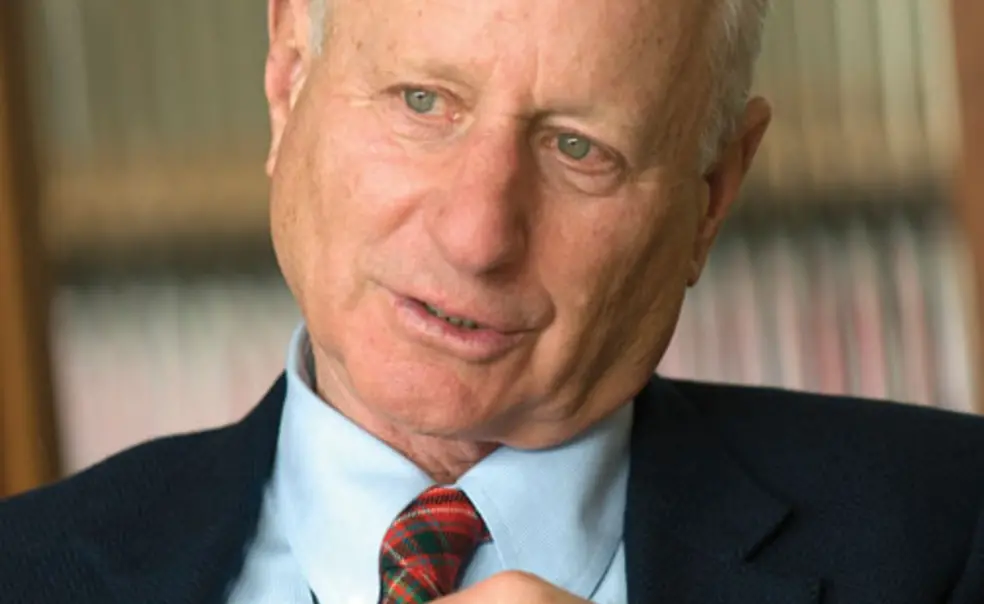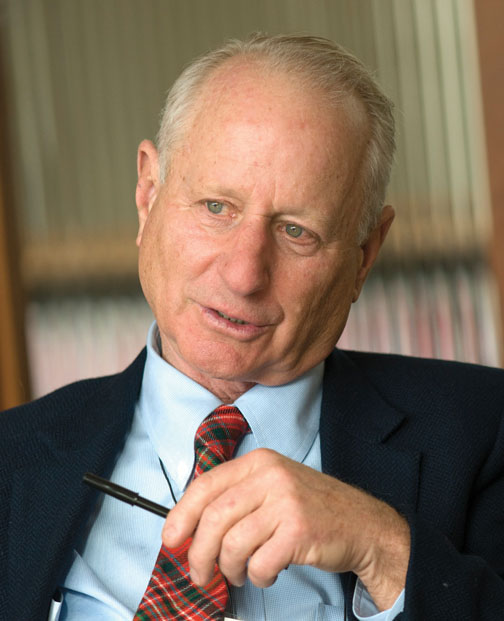Supporting globally minded students
Shelby Davis ’58 brings UWC students to Princeton, other colleges
Instead of finding desolation, Davis found inspiration. The school was one of a handful of campuses of United World Colleges, a two-year high-school program that offers students from around the world an advanced curriculum and prepares them to live and work in a global setting.
“The students were learning as much out of the classroom, with the kids from all over the world, as they were inside — different mores, different cultures, different foods,” says Davis.
“It was there that I realized that the new millennium was upon us, and that the next 100 years were going to be a big change — a breaking down of global borders,” he says, noting that the 13 UWC schools are all over the globe — from Hong Kong and Bosnia to India — and accept students from more than 90 countries.
Davis, an investor, philanthropist, and former Princeton trustee, co-founded the Davis United World College Scholars Program in 2000 to meet the financial needs of United World College graduates who wanted to attend Princeton or one of four other colleges — Middlebury, Colby, College of the Atlantic, and Wellesley — where his family had connections.
Today Davis’ foundation partners with 91 colleges, ensuring that any United World College graduate accepted at those schools will receive full financing. The scholarship support is provided by Davis and his wife, Gale.
Princeton itself has enhanced the internationalization of the undergraduate experience since Davis launched his program. In 2001–02 there were 318 international undergraduates, but by 2009–10 the number had grown to 518, according to University spokeswoman Emily Aronson. And Davis’ program has been a part of that growth.
The Davis scholars “bring a perspective and a set of experiences that are particularly relevant to Princeton’s internationalization mission,” says Diana K. Davies, vice provost for international initiatives at Princeton, in an e-mail. “They are at once cosmopolitan (having been immersed in a truly international and intercultural learning environment) and service-oriented.”
Sachs Scholar Josh Grehan ’10, who grew up in rural Saskatchewan, Canada, and went to the UWC school in Victoria, British Columbia, was one of more than 60 UWC graduates supported by the Davis program at Princeton this year. In addition to covering his education, said Grehan, the program financed summer travel to Europe and a service project in Canada.
Americans Astrid Stuth ’11 and Michael Schoenleber ’12 attended the UWC in Hong Kong, where they led discussions relating to international relations. Drawing on that experience, after Stuth arrived at Princeton, she and Schoenleber decided to create a conference with American and Iraqi teenagers to help them find common ground. Stuth and Schoenleber, who at the time was still a UWC student, raised funds, located a host school outside Amman, Jordan, and hosted 16 Iraqi and 16 American students for 11 days in July 2008. “The most important thing that the participants gained through the conference was lasting friendships,” said Stuth. “All of them stay in touch via Facebook and e-mail, and many of them have traveled to visit each other since the conference.”
Davis said he hopes Princeton — and all American universities — continue to find students who have an international focus.
“The time has gone when America could ignore the rest of the world,” he said. “And the only way we can progress is if young people know what the rest of the world thinks.”











No responses yet